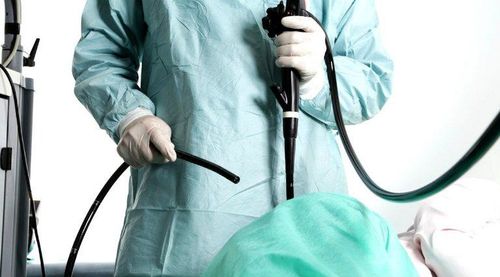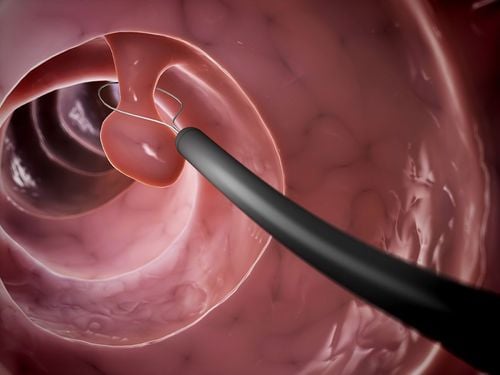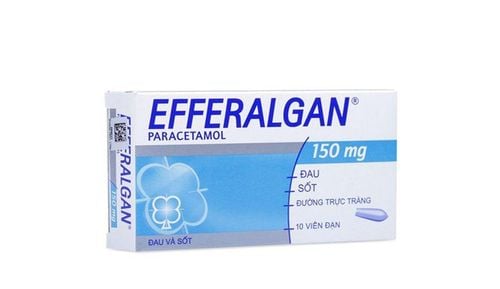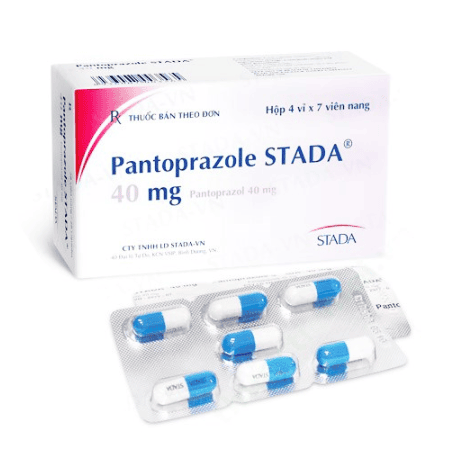This is an automatically translated article.
The article was written by MSc.BS.Mai Vien Phuong - Gastroenterologist, Department of Medical Examination & Internal Medicine - Vinmec Central Park International General Hospital.Detecting cancer at an early stage is very important, because the treatment for early gastric cancer is debulking of the cancerous lesion (ESD), which does not require surgery to remove part or all of the stomach. with many risks of anesthesia and surgery, helping to improve the quality of life for patients.
1. What is early gastric cancer?
Early gastric cancer is cancerous lesions that are still localized to the mucosa or submucosa, regardless of whether there is lymph node metastasis or not.
According to statistics, if diagnosed early, when the lesion has not invaded through the muscular layer of the stomach wall, the survival time after intervention over 5 years is from 80 to 90%, if the diagnosis is late when the damage is done. If it has passed through the muscle layer and spread to the serosa, the survival time after surgery over 5 years is only about 10-15%.
2. Risk factors for stomach cancer
Helicobacter pylori is considered a cause of stomach cancer. H.Pylori causes chronic atrophic gastritis, causing precancerous lesions.Living habits: Eating foods containing nitrate such as salted fish meat, pickled vegetables, grilled meat, smoked meat .. increases the risk of stomach cancer. Obesity: Obese people are more prone to stomach cancer than the general population. Heredity: Stomach cancer is associated with a number of inherited syndromes, with relatives having the disease.
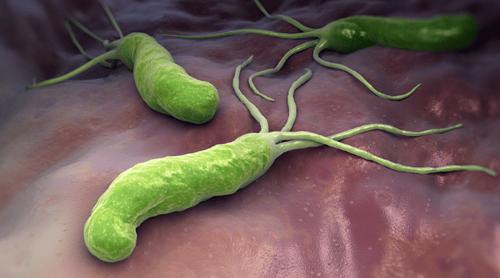
3. Signs of early stomach cancer
Usually an early gastric cancer lesion is very small in size, from a few millimeters to no more than 5-7cm, so that lesion does not affect the stomach's function of digesting food and completely does not cause discomfort or abdominal pain to the patient.
To detect stomach cancer early stage must rely on cancer screening programs. An indistinct upper GI tract symptom may present 6-12 months before an early cancer diagnosis and may be present in 90-95% of patients unrecognizable by screening. With the active gastric cancer screening program in East Asian countries (mainly done in Japan), many patients are detected early stomach cancer when there are no symptoms.
At an advanced stage, stomach cancer often has the following signs:
Weight loss: This is one of the common symptoms of stomach cancer. Weight loss occurs rapidly as the disease progresses to an advanced stage Abdominal pain : Starts with intermittent pain, however, the abdominal pain will become worse as the patient progresses to the following stages of stomach cancer, even taking medicine does not reduce.. Anorexia: Also a common symptom in stomach cancer patients, it is accompanied by the phenomenon of difficulty swallowing, the feeling that food is always blocked. in the throat Fullness of the stomach after eating : Patients often have a feeling of fullness, discomfort and nausea after eating Vomiting blood : When vomiting blood occurs frequently, we also need to consider the possibility of vomiting. possibility of stomach cancer. Black stools: Most of these symptoms will appear in people with stomach ulcers as a sign that the disease may have turned into cancer.
4. What to do to detect stomach cancer early?
To detect stomach cancer early the best way is to screen for stomach cancer .
Screening is done for patients with no clinical symptoms. In some developed countries such as Japan, where stomach cancer is a common disease, extensive screening can help detect gastric cancer early.
The doctor will give you some tests to check such as: Gastroscopy, biopsy of suspected lesions, tests for tumor markers...
Esophagogastroduodenoscopy This is a method Best for detecting early gastric cancer suspected lesions.
Based on the abnormal images on the endoscope, the doctor will take a small tissue sample (biopsy) to confirm the diagnosis.
Endoscopy also helps to evaluate patients at risk of gastric cancer: Helicobacter Pylori infection, atrophic gastritis, intestinal metaplasia in the stomach, to plan appropriate repeat endoscopy.
Biopsy Doctors do biopsies during an upper endoscopy by taking a small tissue sample from an area of suspected early cancer of the stomach. The pathologist then looks at it under a microscope. Once doctors have confirmed the diagnosis, further tests are performed to diagnose the stage.
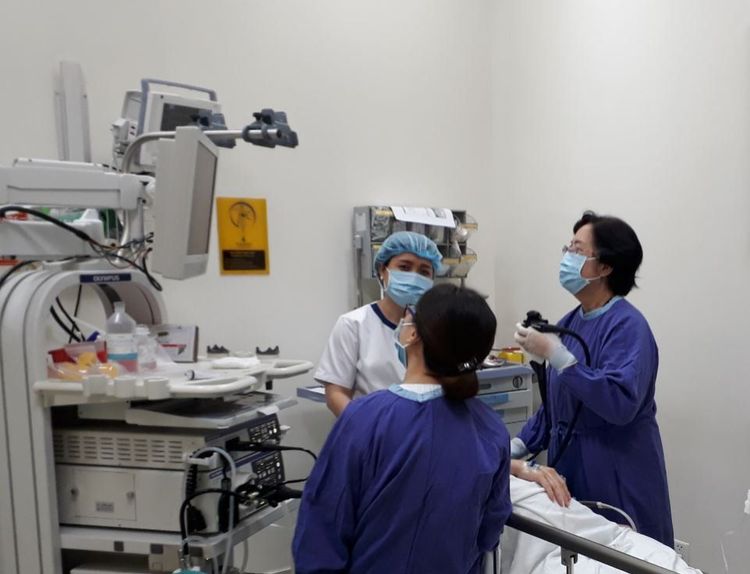
5. Subjects who need to be screened for stomach cancer
The following risk subjects need to be screened for stomach cancer:
Advanced age (> 50 years old). Having a family member with stomach cancer, gastrointestinal cancer ... People with chronic gastritis - duodenal ulcer, HP infection. People who have a habit of eating a lot of salted foods, baked goods, and poor quality preserved foods. People who regularly smoke and drink alcohol. People with symptoms of stomach cancer: abdominal pain, belching, prolonged heartburn. Patients whose previous gastroscopy showed atrophic gastritis and intestinal metaplasia should undergo re-examination after 6 months to 1 year for precancerous lesions. .
6. Where should I be screened for stomach cancer?
Today, the development of science and technology, with increasingly modern endoscope systems, helping to clearly identify the lesion, magnify the lesion many times, has helped in the early diagnosis of stomach cancer. clearer and more precise.
Please dial HOTLINE for more information or register for an appointment HERE. Download MyVinmec app to make appointments faster and to manage your bookings easily.





